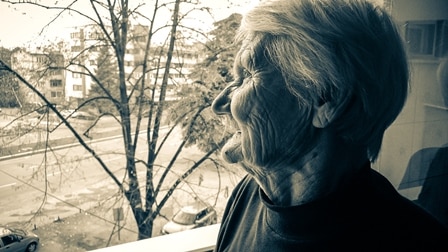
Although the issue of elder abuse has gained greater visibility at global and EU level for the last few years, millions of older persons continue to suffer abuse and neglect across Europe and worldwide. And this situation may get worse in particular in the areas of health and long-term care services with the growing demand for care due to demographic ageing and the current austerity cuts in publicly funded services.
Mistreatment and neglect in old age are the consequence of negative perceptions of old age and ageist stereotypes, which remain deeply rooted in behaviours and mentalities but are also reflected in many laws, policies and practices underlying the functioning and structure of our societies. This so-called ‘structural ageism’ has been revealed by our members and is described in the AGE position paper on structural ageism.
Ensuring dignity in later life and access to quality care services would be a key step towards addressing elder abuse in Europe. As AGE Secretary-General Anne-Sophie Parent highlights in our joint press release to mark the Elder Abuse Awareness Day, “adopting a more positive attitude to ageing and looking at frail older persons as rights holders entitled to respect and dignity is the cornerstone for ensuring a truly old-age inclusive society and preventing elder abuse. No one should be denied access to the health and long-term care they need, including older people with severe dementia!”.
Joint EU high-level conference ‘Fighting elder abuse in health and long-term care’, 16th June 2016
In light of these challenges, AGE joined forces with the European Commission, the Council of Europe and the European Network of National Human Rights Institutions (ENNHRI) to organise for a third time a high-level joint event aimed to develop our understanding of the specific challenges of structural ageism and discrimination in access to health and social care, and show how this has an impact on the prevalence of elder abuse in health and long-term care settings.

The event provided evidence of the need for a rights-based approach in the delivery of health and long-term care. This will not only strengthen existing policy objectives, but will moreover ensure that the systematic ageism and the abuse of older people is not sidelined, but becomes the focus of concerted policy action.
Presentations and conclusions of the conference will be available at the event webpage in early September.
Mainstreaming Palliative Care for an Age-Friendly Society – PACE-AGE joint event, 15 June 2016
 In the framework of PACE, the European project on palliative care for older people in care and nursing homes in Europe, AGE organised last 15 June in Brussels a policy conference. This event discussed the benefits of palliative care and how to mainstream it in all relevant policies to ensure access to all those older persons in need.
In the framework of PACE, the European project on palliative care for older people in care and nursing homes in Europe, AGE organised last 15 June in Brussels a policy conference. This event discussed the benefits of palliative care and how to mainstream it in all relevant policies to ensure access to all those older persons in need.
A report of the event can be read here
Also on the occasion of the World Elder Abuse Awareness Day on 15 June, the United Nations Independent Expert on the enjoyment of all human rights by older persons, Rosa Kornfeld-Matte, warns that insufficient action is being taken to stop elder abuse around the world and urges everyone who suspects a case of elder abuse to report this serious human rights violation.






